Meyer Lemon Tree Introduction

The Meyer lemon tree (Citrus × meyeri) is a popular citrus tree known for its small, round, and flavorful lemons. It is a hybrid between a true lemon and a mandarin or orange, resulting in a unique fruit with a sweeter and less acidic taste compared to traditional lemons. Meyer lemon trees are highly sought after by gardeners and citrus enthusiasts for their attractive appearance, fragrant blossoms, and delicious fruits.
History
The Meyer lemon tree is believed to have originated in China and was introduced to the United States in the early 20th century by Frank Meyer, an agricultural explorer. The tree gained popularity for its ornamental value and culinary uses. However, it faced some challenges due to the spread of a viral disease called tristeza, which affected citrus crops. This led to a decline in the cultivation of Meyer lemon trees until improved disease-resistant varieties were developed.
Characteristics
Habit
Meyer lemon trees are small to medium-sized evergreen trees with a bushy growth habit. They can reach a height of 6 to 10 feet (1.8 to 3 meters) and have a rounded canopy of glossy, dark green leaves. The trees have a thorny nature, with sharp spines on their branches.
Blossoms
In spring, Meyer lemon trees produce fragrant white flowers with a hint of purple. The blossoms are not only visually appealing but also attract pollinators such as bees and butterflies.
Fruits
Meyer lemons are smaller and rounder than traditional lemons, with a thin, smooth, and deep yellow to orange-yellow skin. The flesh is juicy, fragrant, and less acidic, making it ideal for various culinary applications. The flavor profile of Meyer lemons is often described as a harmonious blend of lemon and mandarin, with subtle floral undertones.
Cultivation
Climate
Meyer lemon trees thrive in USDA hardiness zones 9 to 11, where the minimum temperatures do not fall below 20°F (-6°C). However, they can also be grown in containers and brought indoors during colder months in regions with colder climates.
Sunlight
These citrus trees require full sun exposure to thrive and produce abundant fruits. Place them in a location that receives at least 6 to 8 hours of direct sunlight daily.
Soil
Meyer lemon trees prefer well-draining soil with a slightly acidic to neutral pH range of 5.5 to 7.0. The soil should be rich in organic matter and loamy in texture to provide optimal conditions for root development.
Planting
When planting a Meyer lemon tree, dig a hole that is twice as wide and deep as the root ball. Place the tree in the hole, ensuring that the graft union is above the soil level. Backfill the hole with soil, gently firming it around the roots. Water the tree thoroughly after planting.
Care and Maintenance
Watering
Meyer lemon trees require regular watering to keep the soil evenly moist, but not waterlogged. Water deeply, allowing the top inch of soil to dry out before the next watering. Adjust the frequency of watering based on the weather conditions and the moisture retention of the soil.
Fertilization
Feed Meyer lemon trees with a balanced citrus fertilizer according to the package instructions. Apply the fertilizer during the growing season, typically from late winter to early fall. Avoid over-fertilization, as it can lead to excessive vegetative growth with limited fruit production.
Pruning
Prune Meyer lemon trees to maintain their shape, remove dead or diseased branches, and improve air circulation within the canopy. Pruning is best done in late winter or early spring before new growth appears. Use clean, sharp tools and make precise cuts to minimize damage to the tree.
Common Issues
Pests
Meyer lemon trees can be susceptible to common citrus pests such as aphids, scale insects, and citrus leaf miners. Regularly inspect the tree for signs of infestation, and take appropriate measures such as applying horticultural oil or introducing beneficial insects to control the pests.
Diseases
One of the major diseases affecting citrus trees is citrus canker. It causes raised lesions on the leaves, fruits, and stems. If you notice any signs of citrus canker, it is important to take immediate action, such as pruning and disposing of infected plant material, to prevent the disease from spreading.
Harvesting
Meyer lemons are typically ready for harvest when they reach a deep yellow to orange-yellow color and have a slight give when gently squeezed. Twist or cut the lemons off the tree, taking care not to damage the branches. Use the freshly harvested fruits promptly or store them in a cool, dry place for a short period.
Uses
Meyer lemons are versatile fruits that can be used in various culinary preparations. Their sweeter flavor makes them a popular choice for desserts, pastries, and beverages. The juice, zest, and flesh of Meyer lemons add a refreshing and tangy twist to salads, marinades, sauces, and cocktails. Additionally, the aromatic blossoms of the Meyer lemon tree can be used in teas and potpourri.
Conclusion
The Meyer lemon tree is a delightful addition to any garden or citrus enthusiast's collection. With its attractive appearance, fragrant blossoms, and delicious fruits, it offers both ornamental and culinary benefits. By following proper cultivation techniques and providing adequate care, you can enjoy the beauty and flavors of Meyer lemons right in your own backyard.
FAQ
1. Can I grow a Meyer lemon tree indoors?
Yes, Meyer lemon trees can be grown in containers and kept indoors in colder climates. Just ensure they receive sufficient sunlight and proper care.
2. How long does it take for a Meyer lemon tree to bear fruit?
Meyer lemon trees typically start producing fruit within 2 to 3 years after planting, although it can vary depending on growing conditions and tree health.
3. Are Meyer lemons genetically modified?
No, Meyer lemons are not genetically modified. They are a naturally occurring hybrid between a lemon and a mandarin or orange.
4. Can I use Meyer lemons as a substitute for regular lemons in recipes?
Yes, Meyer lemons can be used as a substitute for regular lemons in most recipes. Just keep in mind that their sweeter and less acidic flavor may slightly alter the taste.
5. How do I prevent citrus pests from infesting my Meyer lemon tree?
Regularly inspect your Meyer lemon tree for signs of pests and take preventive measures such as applying horticultural oil or using natural pest control methods. Maintaining overall tree health and cleanliness also helps in deterring pests.

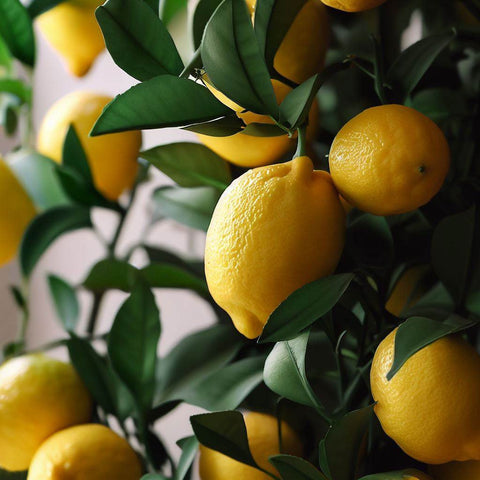

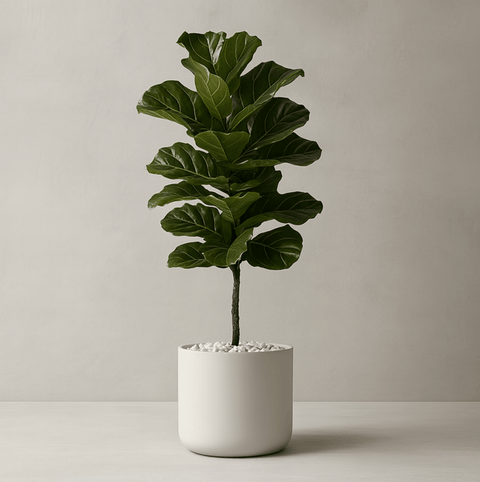
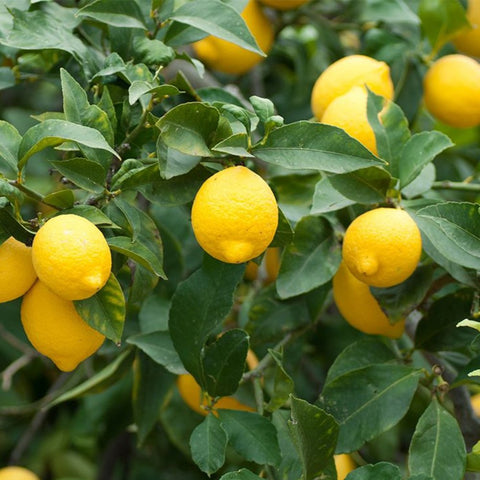

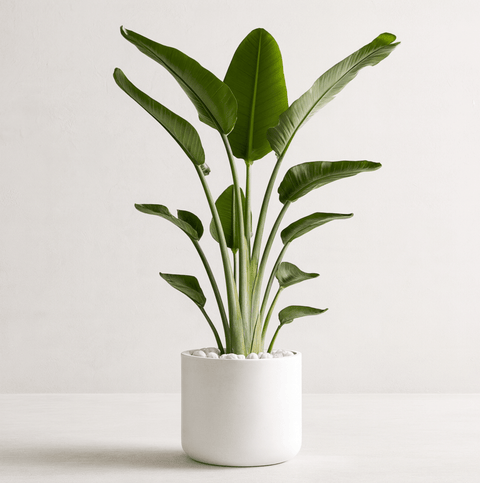

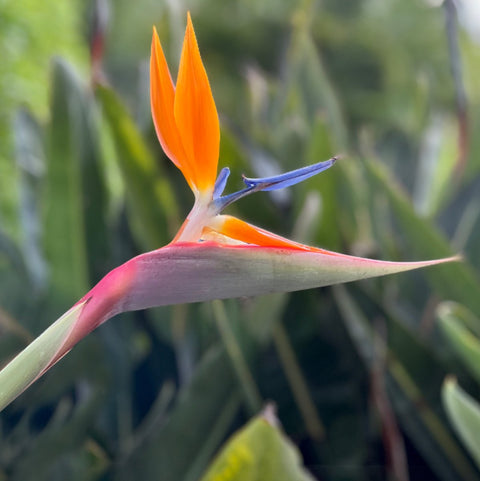
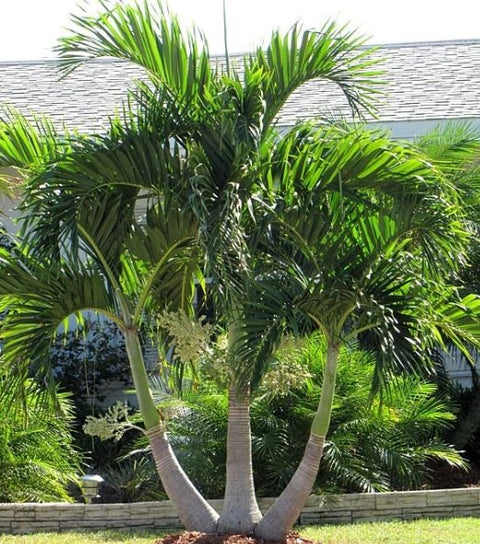
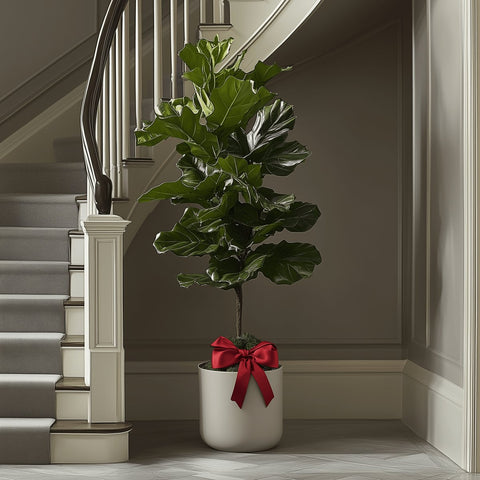


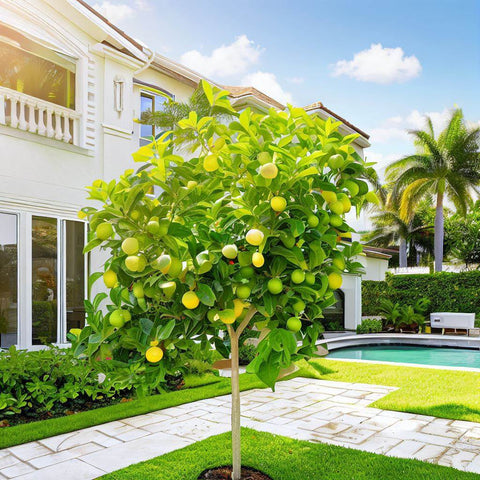



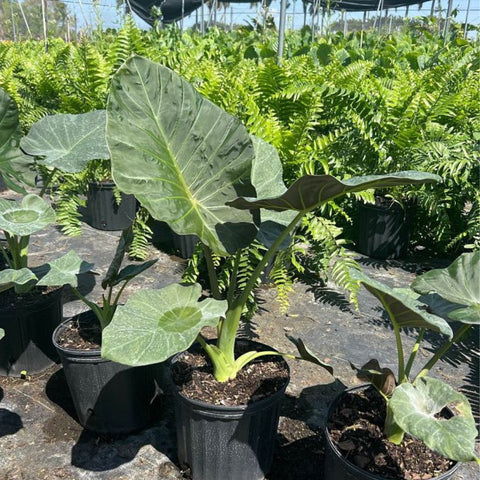
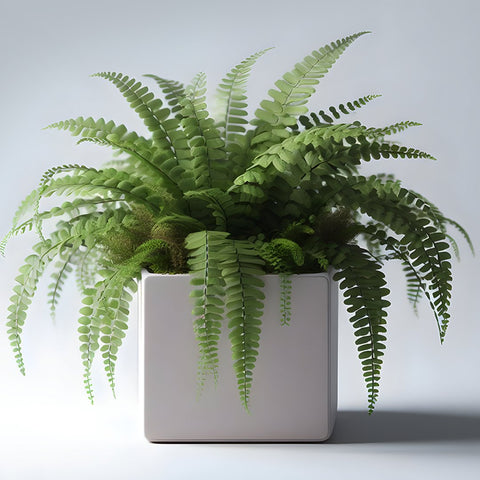
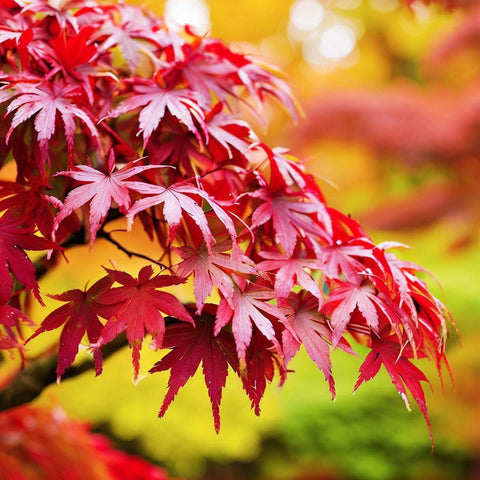
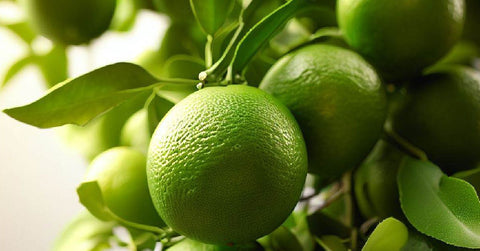


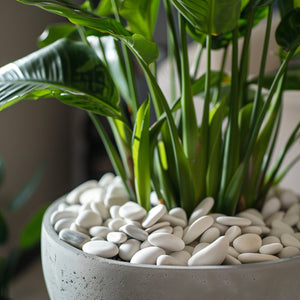

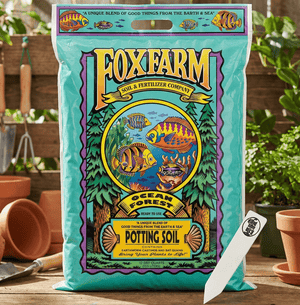




Comments (0)
There are no comments for this article. Be the first one to leave a message!